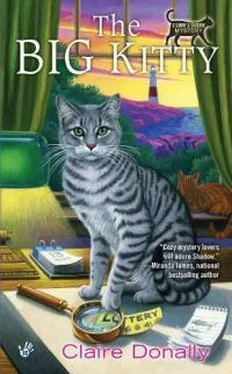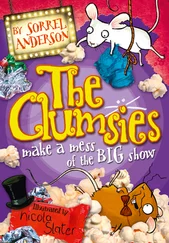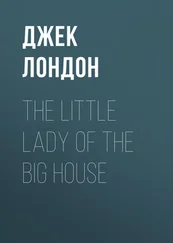And the story was professional, Sunny had to admit as she took the copy Ken held out and looked it over. She’d used an old journalism trick—if you don’t have many facts, ask questions. So, using the death of a fairly controversial local figure as a springboard, she’d raised a lot of questions. With Ada Spruance no longer on the scene, what happened to all the conflicts she’d engaged in? Would poor Festus still be labeled a dangerous dog? Sunny made sure to present the Towles’ case fairly, and she only mentioned the Ellsworths in passing—as Nate said, having the cats rounded up probably ended the threat of chicken stealing. But then, what would happen to all the cats collected from the Spruance house? For that matter, what would happen to the house itself?
Sunny did her best to shine a powerful spotlight of publicity on the homeowners’ association. Maybe that would slow Veronica Yarborough down if she went ahead with her attempt to force Gordie out of his childhood home.
Finally, there were the mysterious aspects of Ada’s death. Sheriff Nesbit had simply issued a curt “no comment” about the case. Mrs. Martinson, never one for publicity, had flat-out refused to be quoted in the story, so Sunny had had to use the weaker “local sources” attribution about Ada being afraid of her kitchen stairs. However, Sunny had her own personal observation to go on when she mentioned the steps in the cellar appearing unused and the fresh paint chips broken off when the long undisturbed doors to the kitchen had apparently been forced open.
And then there was the biggest mystery of all—that legendary lottery ticket. The clerks at Judson’s Market confirmed that Ada had regularly bet on 13, 23, 40, 51, 59, and the Powerball of 14. And they confirmed that those were the winning numbers that had been chosen a year ago. But the countermen couldn’t say for certain whether Ada had purchased a ticket on the given date.
The cutoff to apply for the prize was now barely a week away. If the day passed without a claim, that might be the biggest unfinished business of Ada’s life.
Then Sunny caught the headline on the story below the fold: QUESTIONS CAN BE DANGEROUS. Ken had written the story himself, covering the booby trap in Sunny’s car and the discovery of the stolen Jeep and the hose outside her house. He didn’t step on Sheriff Nesbit’s toes by calling the incidents attempted murder, instead framing the situations as attempts to intimidate a Crier reporter who’d merely been making inquiries for a story. But the facts in each case were there to let the readers draw their own conclusions.
“I thought we agreed not to go with that story,” Sunny complained.
Ken just shrugged his skinny shoulders. “You may not like it, but it’s news—the biggest news in these parts in quite a while.”
He deposited the papers in their rack, yawned, and then turned back to Sunny.
“Funny thing happened this morning,” Ken said. “I got a call from Ollie Barnstable.”
Sunny set her shoulders, waiting for bad news. But Ken surprised her.
“He said if I valued my editorial independence so much, maybe I should buy him out of the paper. Named an amount that would half kill me to raise, but oddly enough, it’s less than what he put in. So is your boss getting a bit forgetful, or is he having money problems?”
Ken’s eyes might have been half closed, but his gaze was keen as he looked at her.
Sunny had to shrug. “We don’t sit down every evening and count his money,” she told the editor. “So how should I know? Maybe he decided to cut his losses—or to cut you a break.”
Ken shook his head. “That doesn’t sound like the Ollie I know,” he said. “For him, a free press is never free. For him, it’s always a question of dollars and cents.”
He yawned again, said good-bye, and headed out.
From her desk, Sunny looked at the pile of papers and debated shifting them to someplace less conspicuous. But that wouldn’t even put off the inevitable. There were dozens of places all over town where Ollie the Barnacle could pick up the Crier . And if he really was having cash problems, his uncertain temper would be even worse than usual.
It was midafternoon before her boss finally called. “I hope Howell cut you a nice check for the story you wrote for him,” Barnstable growled over the phone. “Because you aren’t getting paid for that sick day you took.”
Sunny had had enough of tiptoeing around her boss. “Ollie, did you even read the paper? There’s no mention of mad murderers roaming the streets of Kittery Harbor, just a local story about local questions. Ada Spruance spent her whole life in this town. I think she deserves better than to have ‘accident’ stamped on her forehead before being dumped in the nearest grave. There are questions that had to be raised.”
She took a deep breath, wondering how she could get through to him. “I mean, my parents knew her. I bet yours did, too.”
Ollie was, after all, a hometown boy who’d gone off to the big city and then come back, flush with cash.
He cleared his throat, actually sounding a little embarrassed. “Yeah, Mom and Dad knew her before she became”—the word “crazy” hung unspoken in the air—“the way she was.”
After that, the subject got dropped, and Ollie toned down the sarcasm while they discussed a couple of business matters. But even so, Sunny had the uncomfortable feeling that if interns could handle the website, she’d be out of a job.
She sat feeling gloomy after Ollie hung up, trying to get work done and only creating more for herself.
Then Will Price walked in, going directly to the newspaper rack and picking up a copy of the Crier , holding it at arm’s length to admire the front page. “So there it is,” he said. “A lot of questions—but you missed the million-dollar one.”
“You mean the six-to-eight-million-dollar one,” she told him.
“I mean the big question: why did Gordie Spruance murder his mom?”
His casual attitude toward the whole affair ticked Sunny off. “Well, if you’re so sure that you have a line on the killer, it’s a shame you didn’t outline your case for the story.” She paused to glare at him. “Oh, that’s right. You were staying on deep background for political reasons. So I got to make a target of myself stirring the pot while you watch to see what comes to the top.”
He fiddled with the paper uncomfortably before finally saying, “I wouldn’t quite put it that way.”
“So what have you turned up that makes Gordie a stronger suspect than the Towles—or the Ellsworths, for that matter?”
“Well, I might start with that six to eight million you mentioned,” Will offered. “A big-money motive is a strong motive.”
“So is love—and the Towles really love their dog, Festus. Ada wanted him destroyed.” Sunny also pointed out how the local dog-cat-chicken controversy had hurt the Ellsworths’ business. “They love their land—the family’s been farming there for four generations.”
“We can rule the Ellsworths out on opportunity,” Will told her confidently. “Saturday is a big day for their self-picking operation. Nate was there all morning, running hayrides full of tourists to and from the apple orchards. And Isabel was behind the counter, selling doughnuts and cider.”
Sunny nodded. “And do the others have alibis?”
“Chuck and Leah Towles took Festus for a walk in Windward Point Park,” Will reported. “It was morning, but not too early. A jogger spotted them around the same time you discovered Ada’s body.”
“That doesn’t let them off the hook,” Sunny objected. “All we know is that Ada died sometime before I found her. You didn’t take her liver temperature or anything, did you?”
Читать дальше











